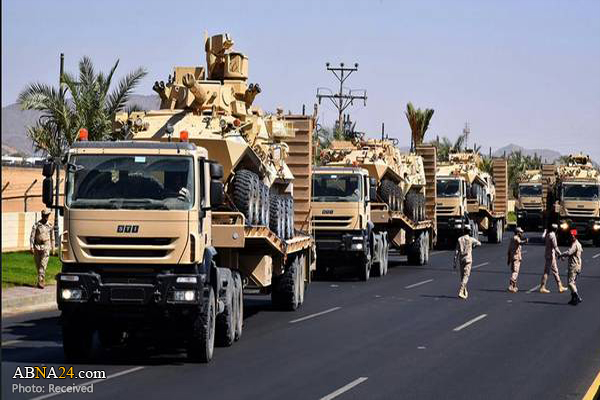 |
Germany extends Saudi arms sale ban for another six months |
Friday, 29 March 2019 |
source:
abna |
 |
|
Germany has extended its ban on all arms exports to Saudi Arabia for a further six months, in a move which drew criticism from fellow European arms exporters, including France and Britain. AhlulBayt News Agency (ABNA): Germany has extended its ban on all arms exports to Saudi Arabia for a further six months, in a move which drew criticism from fellow European arms exporters, including France and Britain. The government of Chancellor Angela Merkel imposed a temporary halt on arms sales to Riyadh back in October 2018, citing circumstances surrounding the gruesome murder of dissident Saudi journalist Jamal Khashoggi at the Saudi consulate in Istanbul, Turkey. “The ban will be extended for a further six months to September 30,” government spokesman Steffen Seibert said in an emailed statement on Thursday. “Over this period no new export applications will be approved.” The ban restricts not only deliveries of fully assembled products, but also of components used by weapons companies in other European nations. This has prompted outrage mostly in France and Britain, who have heavily relied on German high-tech components for producing and assembling fighter jets and warships for Saudi Arabia. In an attempt to alleviate its partners' concerns, Berlin also agreed to extend for nine months export licenses that had already been granted, provided the companies undertook not to deliver any finished weapon systems until the end of the year. The German government also called on France and Britain to ensure that its weapons systems deliveries to Saudi Arabia or the United Arab Emirates would not be used in the Yemen conflict. The two Arab regimes and their regional allies in the Middle East have been leading a deadly military aggression against the people of Yemen since March 2015, using weapons and intelligence supplied by Western countries, most notably the United States, France, Britain and Canada. Merkel’s government has come under pressure from many conservatives at home to end the ban, who argue that a continued ban could jeopardize projects such as the development of a Franco-German combat jet and other arms deals. The arms ban, however, has been praised by human rights advocates, who said it had a great deal more effect than expected. Despite international outrage over both the Khashoggi murder and the war in Yemen, however, most countries have decided to maintain profitable arms deals with Riyadh. Saudis started the Yemen war with the aim of bringing a former government to power and crushing the Houthi Ansarullah movement. Riyadh has failed to fulfill its objectives. The United States, the world’s main arms supplier, has already made it clear that it would not stop lucrative arms deals with Riyadh, its biggest customer. US President Donald Trump has even brushed off criticism over the Khashoggi murder and the Saudis’ role in the war on Yemen, defending the kingdom's de-facto ruler Crown Prince Mohammad bin Salman, who has been leading the war. It was recently reported that the Trump administration had even gone further by approving several authorizations that allows American companies to provide Riyadh with nuclear technology or technical assistance. |
Share: |
|